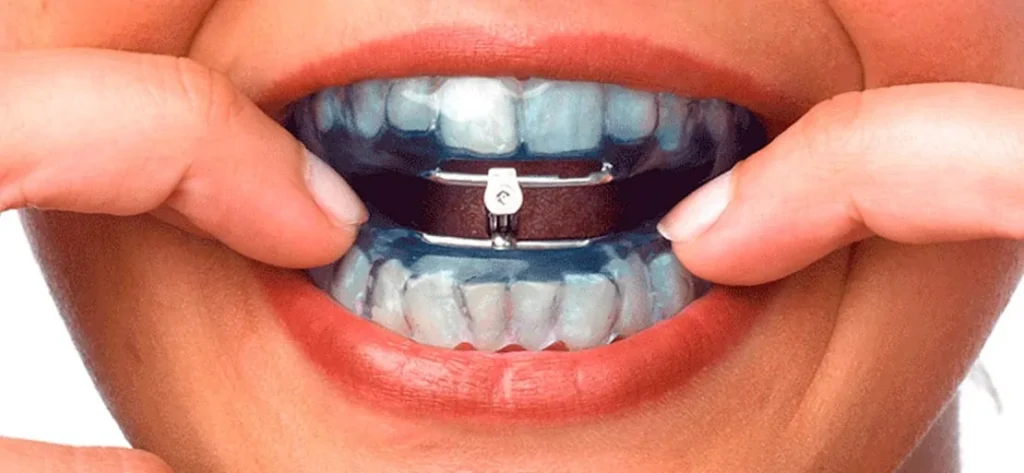Structural areas of the upper respiratory tract begin to flutter (oscillating movements of the palate, uvula or base of the tongue or lower throat) and produce the typical snoring sound. Snoring is a mechanical process that can be counteracted mechanically. This is where dental therapy comes in.
Sleep apnea: stop breathing during sleep:
Mild or primary snoring has no health consequences, but rhoncopathy, pathological snoring, does. At some level, sleep apnea is a serious disease that not only causes daytime sleepiness, but also serious systemic diseases, as the body does not have enough oxygen due to hundreds of breathing interruptions during the night.
Treating snoring successfully
In our dental practice in Rojales, Spain, we successfully use an Erkodent system, the so-called “Silensor-sl”. You can effectively prevent snoring with the help of a mouth splint designed specifically for you and worn at night.
How does the Silensor-sl snoring splint work?
The snoring splint consists of a transparent splint for the upper jaw and lower jaw. The lower jaw is held or advanced by 2 trains connecting the two side rails. This means that the snoring splint counteracts the narrowing of the airway.
Therefore, the breathing air velocity decreases and so does the fluttering that generates noise. Jaw movements are possible thanks to the special structure of the snoring splint and the lower jaw remains in position (cannot sink backwards). This effective and comfortable snoring protection has proven its efficacy in clinical studies: snoring was reduced in more than 80% of patients and the rate of apnea was reduced by up to 50%.
Since in almost all cases the snoring noise is due to airway narrowing, good success can be expected with the snoring splint.
